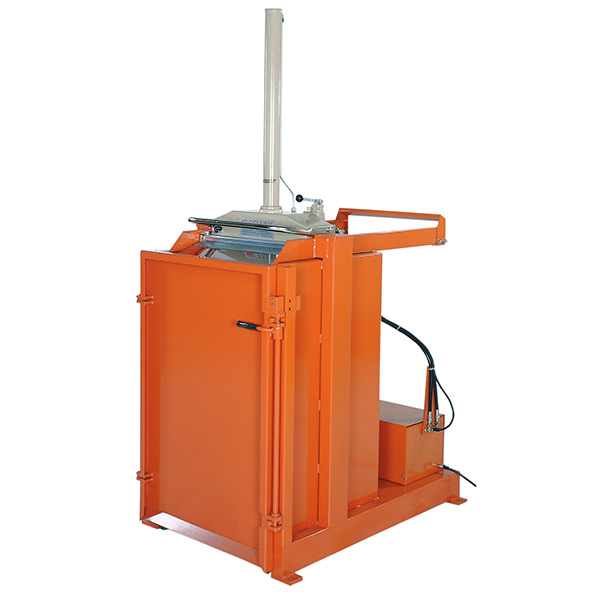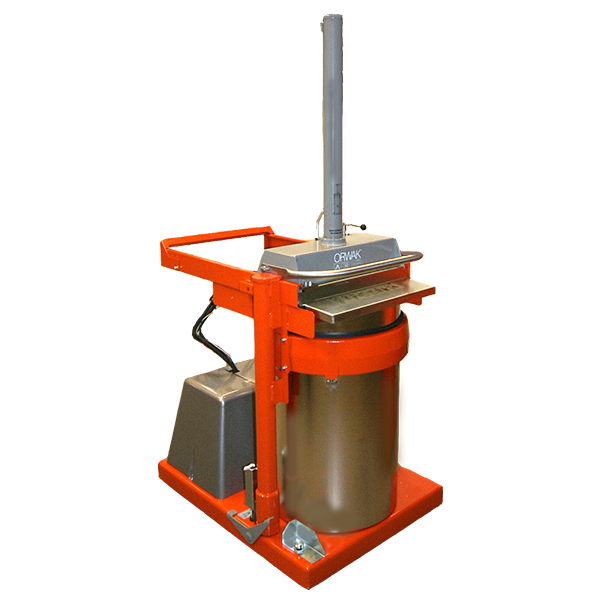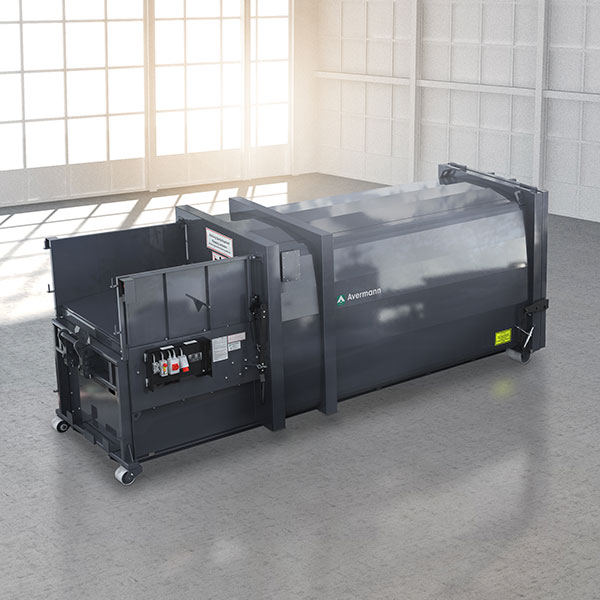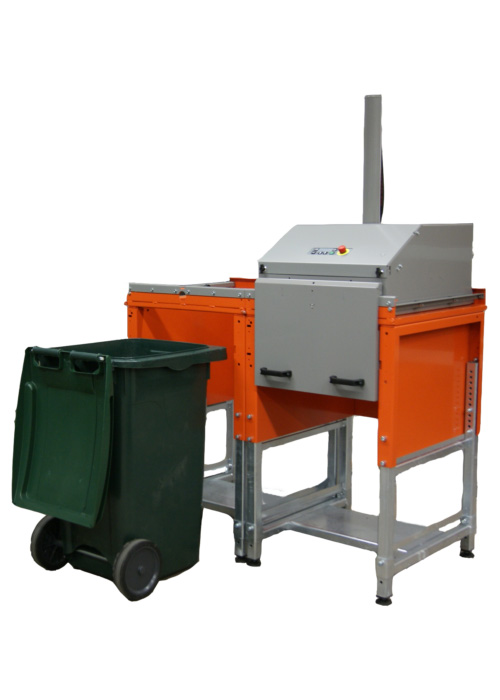Compactors
Compactors are designed to minimize waste volume, thus optimize storage capacities and reduce hauling costs. They create all these benefits by compressing large volumes of trash into a contained area. Further effects of handling waste through a compactor are the reduction of odor, vermin infestation, pilferage and fire hazards.
Use Cases:
- A wide range of facilities and companies that regularly generate large quantities of waste or recycling materials like hotels, hospitals, and malls
- Industrial setups with consistent waste output
Advantages
- Allows waste bales to be sold on the market
- Reduces hauling costs through the need for fewer pickups
- Reduces needed manpower for waste management
Keep in mind
- Need for initial investment if leasing is not an option
- Effectiveness is reached via a waste management concept
- Personnel needs to get acquainted with functionality
Types of Compactors:
In-bag compactor
Compresses waste directly into durable plastic bags resulting in a practical solution for compacting waste in a clean and closed system.
Use Cases: Retail outlets, small / medium industries, hospitality
Advantages: Efficient and hygienic compaction of all types of residual materials
Keep in mind: Not suitable for all types of waste
Press container
Press containers are mobile units that combine the compaction mechanism and the container in one integrated unit.
Use Cases: Ideal for at least medium-sized facilities or locations that have periodical high waste production
Advantages: Flexibility in placement and emptying
Keep in mind: Requires space; higher initial cost if not leased
In-bin compactor
Handles dry waste, streamlines the waste management process by easy compacting.
Use Cases: Perfect for the hotel and restaurant sector, retail and supermarkets
Advantages: Impressive volume reduction with a small machine
Keep in mind: Not suitable for all types of waste
Stationary Compactors
Stationary compactors are permanently installed and remain at a fixed location. The compacted waste is pressed into a separate, replaceable container, which can be regularly removed for emptying.
Use Cases: Larger industrial setups with substantial waste amounts
Advantages: Can handle large volumes through powerful compaction
Keep in mind: Requires more space; higher initial cost if not leased





